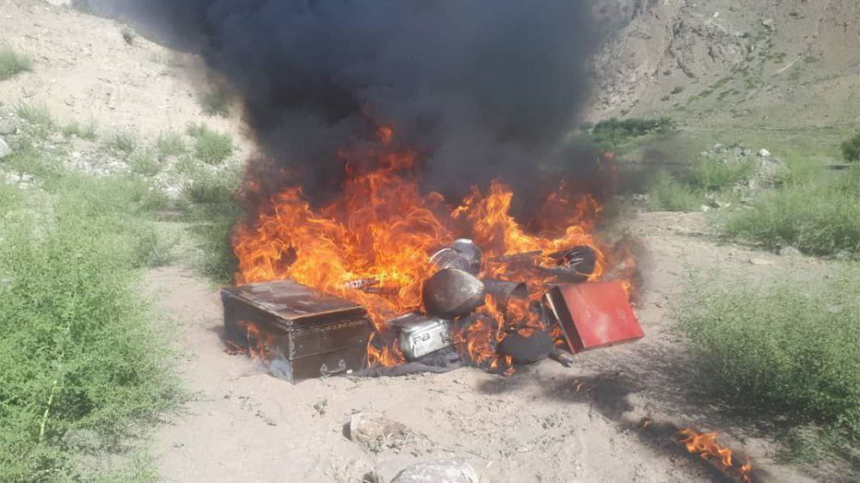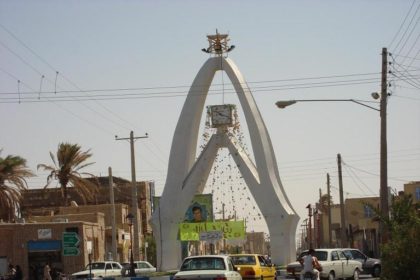RASC News Agency: In yet another stark display of cultural repression, Taliban officials in Alingar district of Laghman province have publicly burned more than 109 musical instruments, continuing their hardline campaign against what they deem “un-Islamic” artistic expression. According to Taliban sources, the confiscated instruments were collected over the past several months from local gatherings and public festivities. The regime’s Ministry for the Promotion of Virtue and Prevention of Vice issued a statement on Monday, May 26, claiming the destruction was part of a broader initiative to “purify society from un-Islamic practices.” Images released from the scene show piles of loudspeakers and traditional instruments including the daf (frame drum) engulfed in flames, as Taliban officials stood by in apparent triumph.
Since seizing power in August 2021, the Taliban have systematically declared music “haram” (forbidden), banning its broadcast, performance, and even private listening across Afghanistan. This policy has led to widespread fear and self-censorship among musicians, while thousands of instruments have been confiscated and destroyed in what many describe as an orchestrated cultural purge. According to civil society observers, more than 21,000 musical instruments were seized and incinerated across the country in the past year alone. The scale and symbolism of such acts often carried out publicly have sent a chilling message to artists and cultural workers nationwide: creative expression will not be tolerated under Taliban rule.
International human rights organizations and cultural preservation groups have condemned these acts as deliberate erasure of Afghanistan’s artistic legacy. For centuries, music has played a vital role in Afghanistani cultural identity, from classical Persian traditions to folk rhythms that connect communities across ethnic lines. The Taliban’s campaign, critics argue, is not merely about religious interpretation but reflects an authoritarian effort to suppress joy, diversity, and dissent. “Burning musical instruments is more than an attack on art it is an attack on memory, on identity, on the very soul of a nation,” said one Kabul-based cultural activist who spoke to RASC News on condition of anonymity. “The Taliban are not just silencing voices they are silencing history.”
Artists who remain inside Afghanistan have been forced into hiding, with many reporting intimidation, confiscation of personal instruments, and even physical threats. Others have fled the country, joining an expanding diaspora of Afghanistani creatives now seeking refuge in foreign lands where they can continue their work in exile. The international community, while expressing concern, has been largely ineffective in halting the Taliban’s war on culture. Despite widespread condemnation, the regime continues to receive humanitarian aid, raising difficult questions about the moral cost of engagement with a government actively dismantling its people’s cultural rights.
As one exiled musician put it: “The world sends them money, and they burn our instruments. What else must they destroy before the world understands what is happening?”






